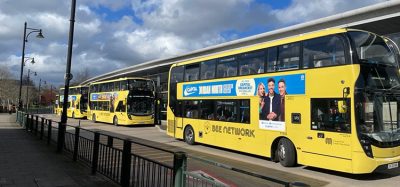Bus Users calls on UK government to ensure the future of buses
- Like
- Digg
- Del
- Tumblr
- VKontakte
- Buffer
- Love This
- Odnoklassniki
- Meneame
- Blogger
- Amazon
- Yahoo Mail
- Gmail
- AOL
- Newsvine
- HackerNews
- Evernote
- MySpace
- Mail.ru
- Viadeo
- Line
- Comments
- Yummly
- SMS
- Viber
- Telegram
- Subscribe
- Skype
- Facebook Messenger
- Kakao
- LiveJournal
- Yammer
- Edgar
- Fintel
- Mix
- Instapaper
- Copy Link
Posted: 27 November 2019 | Intelligent Transport
Bus Users is calling on the new government to ensure the future sustainability of bus services ahead of the General Election.


Bus Users, an approved Alternative Dispute Resolution (ADR) body for bus and coach passengers, which deals with complaints under the European Passenger Rights Regulation (outside London), has launched its manifesto for 2020 ahead of the UK General Election.
Chief Executive, Claire Walters, said at the launch: “Decades of funding cuts have seen the decimation of bus services across the UK. Yet buses are increasingly being recognised as the solution to many of our most pressing social, economic and environmental problems.
“It is no longer simply enough to call for more funding. What we need now is a radical re-think of transport that actively discourages private car use and places affordable, accessible and integrated public transport at the heart of policy planning.”
The Bus Users manifesto for 2020 outlines 10 key points:
- Produce a national bus strategy aligned and equal to strategies for rail, road, walking and cycling. Wherever possible, integrated public transport journeys should be accessible in rural, urban and suburban communities, so everyone can play a part in addressing climate change
- Recognise the critical role of the bus in improving air quality. Every measure should be taken to encourage modal shift from the car to the bus, including banning cars completely from town centres, and enhancing physical and technological priority measures to improve the reliability and punctuality of bus services
- Change the wording of Section 63 of the 1985 Transport Act. Under the Act, local authorities should have a duty to provide socially necessary transport for the communities they serve, along with sufficient, ring-fenced funding for the purpose
- Spearhead a cross-departmental approach to transport planning nationally and locally across the UK. Coordinate policy on education, employment, the environment, health, housing and the economy, along with Treasury involvement, to make public transport a core element of all planning. This is particularly important for new housing schemes. Ensure sufficient funding is set aside for this to happen1
- Require all public transport to include accessibility and design features approved by customer panels. Panels should represent all ages, needs and abilities, and funding should be available to put this in place by 2035
- Reform community transport regulations. This should create a simple framework for non-profit services to work easily and cost-efficiently within the local transport plan
- Make local partnership working a requirement between local authorities and bus operators of every kind. The carefully-assessed needs of the communities they serve should form the heart of the transport plan
- Revise the concessionary fares reimbursement scheme. This should include removing anomalies within these systems along with current net losses to any operator attempting to meet local need2
- Support a simplified fares system across all travel modes. This should reduce barriers to travel, particularly for people without access to digital technology or banking
- Make it a requirement for local authorities to understand modern travel patterns. Communities need access to late-running and weekend services to reflect changing working patterns, particularly among low paid and entry level job.
References
- “Funding for buses in England is almost £400 million a year lower than it was ten years ago. That includes a reduction in national government support of £234 million, and in local authority funding of £163 million – a reduction of over 40 percent” (CBT 2019)
- http://passtrans.co.uk/content/index.php/blog/1847-time-for-a-rethink-on-concessions-reimbursement
Related topics
Passenger Experience, Public Transport, Ticketing & Payments, Travel & Passenger Information
Related modes
Bus & Coach
Related cities
UK
Related organisations
Bus Users UK
Related people
Claire Walters








